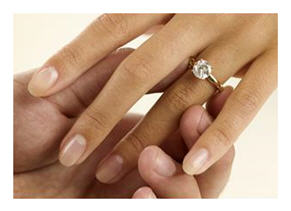I don’t try to offend, but nor do I go out of my way to be politically correct.
 In fact, in many instances I find that attempting to live a daily life of political correctness is a bit like walking on a bed of nails: You’re in a painful predicament no matter what you do, until you hop off that particular surface.
In fact, in many instances I find that attempting to live a daily life of political correctness is a bit like walking on a bed of nails: You’re in a painful predicament no matter what you do, until you hop off that particular surface.
And to me, those who insist we be politically correct at all times may be focusing on just that – surface rather than substance.
Shall we consider a few examples?
Is it politically incorrect to tell a co-worker she’s looking beautiful this morning? What if you say she’s looking “hot” instead? Is it politically incorrect to tell that same colleague that her skirt is too tight, too short, and she ought to save it for her slutty nights out on the town with her girlfriends?
Slight variations in wording change everything, don’t they? (Okay. That third variation wasn’t so slight.) Still, would political correctness (and fear of a sexual harassment suit) banish all of them from the office? Two out of three, just the last, or does it depend on the context?
If one woman says any of these to another woman and jokingly, does political correctness fly out the window? And if a man were to say any of them – then what?
Has political correctness gone too far? Would that determination be entirely subjective and case-specific? Is political correctness too focused on the words we use (or don’t), as opposed to the acts and principles of respect that guide us in our beliefs and behaviors?
Care for more (Franco) fodder pulled from recent news?
French Government Bans Mademoiselle
I was reading Huffington Post this morning – two separate articles referencing the French government’s (most recent) insistence on no longer making marital status distinctions on forms. The first is a report of the French banning the use of Mademoiselle. The second is an article looking at American usage of Miss, Mrs., and Ms.
In both cases, obviously, this impacts women, as men are called Monsieur in French (like “Mr.” in English), whereas women are designated Madame or Mademoiselle (Madame, Mrs. or Miss in English).
But in France, it’s a little more complex than that. The Madame / Mademoiselle distinction has been more about age and respect than marital status. (If you read French, you can check the details, dates and history.)
In an attempt to be more politically correct, the French are striving to eradicate Mademoiselle from usage as well as forms, and dish up a single term to indicate sex, which is Madame for females.
In case you’re wondering, in the Middle Ages, there was a corresponding masculine term for young boys – demoiseau – which eventually fell out of usage. It will be interesting to see how many generations it takes for Mademoiselle (“Miss”) to disappear from everyday parlance, if indeed it ever does.
Definition of Political Correctness
I wanted a definition of political correctness, but decided to put one together in my own words first, curious to see if I could do so. For one thing, I lived through the period of time before we were all “politically incorrect” and rallied (in my youthful idealism) around some of the changes that transformed us into equal opportunity non-offenders.
I’m also a wordsmith, and political correctness – like it or not – remains more about words than actions, which is precisely part of the problem I have with it.
 Yes, language matters. We shape our self-image with the terms we use in our heads – our admonishments, our self-praise, or echoed labels from troubled childhoods or the epithets we hear in disrespectful circles. But words are one thing, and actions speak louder than words, right?
Yes, language matters. We shape our self-image with the terms we use in our heads – our admonishments, our self-praise, or echoed labels from troubled childhoods or the epithets we hear in disrespectful circles. But words are one thing, and actions speak louder than words, right?
I won’t pretend that certain terms don’t offend me. There are relatively few, and among them, never something as innocuous as ‘Miss” rather than… well, whatever. And I certainly wasn’t bothered being called Mademoiselle when I lived in France, or even “Young Lady” by someone 30 or 40 years my elder, here in the US.
But I cannot abide racial slurs, religious slurs, ethnic slurs, and believe it or not – one or two sexually explicit nouns and adjectives that might surprise you – when used in name-calling, or intended to describe woman’s sexual activity in a derisive fashion.
I find I’m more often offended when a stranger (typically a man) refers to me as “Dear,” “Hun” or “Honey” – one of many theoretical terms of endearment that intentionally or unintentionally demean adult women.
In my opinion.
Getting back to political correctness, I would define it as:
Use of terminology which is neutral and non-offensive in the politically sensitive contexts of public speech, educational institutions, the workplace, the media. This terminology would seek to avoid any sexual stereotyping or offense pertaining to gender or sexual preference, as well as any racial, ethnic, or religious stereotyping or offense – intended or otherwise – communicated through language.
That’s my definition, and I promise – I did not peek!
What do I find elsewhere as a definition of politically correct? Something more succinct and in a way, more revealing:
demonstrating progressive ideals, esp by avoiding vocabulary that is considered offensive, discriminatory, or judgmental, esp concerning race and gender… often involves changing or avoiding language that might offend anyone, especially with respect to gender, race, or ethnic background…
“That might offend anyone… ” Yikes! That’s a tall (impossible?) order! But note, political correctness is about use of language intended to support a broad set of “progressive ideals.”
Interesting.
Content is King. Wait. Make That Queen!
Some believe it is the message content that matters most – the substance rather than the delivery or tone. It may be true in online venues, but in good communication that content incorporates tone, smartly delivers on deft diction, and nonetheless considers context.
It’s undeniable that the same words will offend one person and not another, as each recipient brings his or her own experience to interpreting the message. Likewise, the circumstances in which we use or receive a communication are enormously important.
What makes the statements above concerning a woman’s appearance potentially offensive?
Context.
Who says it, where it’s said, how it’s said.
And note – in today’s world, we have signs of our (lingering?) male dominated society everywhere. Context is king (not queen) in a language and land where older men are still trying to exercise power over the bodies of young women. We have only to look at the flood of attempts to enact legislation to that end.
Miss, Mrs., Ms., Ma’am… So?
One of the comments left on the second article I reference essentially says the following, and I’m paraphrasing:
Who cares if we’re called Miss or Ma’am or Ms.? Don’t we have more important things to worry about as women, like 77 cents on the dollar when it comes to pay as compared to men, like reproductive rights being challenged at every turn?
As I’ve gotten older, I couldn’t care less if someone calls me Miss or Ma’am; I always signed or ticked off the check box marked “Ms.” even after marriage, though I always secretly wished I had a Ph.D. so I could sign “Dr.” and mess with the system!
I do care when forms unnecessarily ask marital status and go so far as to include single / married / widowed / divorced. These marital status distinctions seem archaic and irrelevant, though it’s worth noting that the one exception – possibly – is the physician’s office where men and women both check these little boxes.
And yet…
I return to my premise that perceptions of others as well as self-image are shaped by the words we use. Would we tolerate racial slurs any longer? Religious? Sexual preference?
What about age? And to me, the issue of Mademoiselle / Madame is more one of age than of marital status, whereas the American usage of Miss / Mrs. is explicitly about marital status.
Sexual Harassment, Politeness, Intention
In one of my former corporate jobs, I was the only woman working with a team of great guys. I was in my early thirties as were they; I was single, they were married. Our jokes were sexual in nature, our language colorful, our camaraderie very real, and our productivity high. We worked together for years and loved it.
During that time, sexual harassment rules (and required classes) made their appearance on the scene. We hated it. We understood the reasons – the idea was to ensure respectful language and behavior in the office – but suddenly we couldn’t joke in the way we always had, and fun seeped out of our interactions – not entirely, but noticeably. Playfulness (intention) was bludgeoned by enforced political correctness.
One could argue that the debate over Miss, Ma’am, Mrs., Ms. and so on is hardly politically inflammatory, especially as these terms are frequently used without any intention to offend. But there are no such diminutive or marital status distinctions for men. Subconsciously, are we encouraging women to feel lesser, smaller, secondary? Or do we rely on each person to specify what they want to be called?
A young woman in a new workplace is not going to feel comfortable bucking the norm – whatever that norm is. For that matter, I suspect a young man who is also inexperienced wouldn’t either. So do we continue to insist on all sorts of terminology dos and don’ts to protect our potential sensibilities? Do we view rules of political correctness as society coming of age, and beginning to do the work of equal respect for all people?
But what about the underlying discriminatory belief systems and behavioral issues? Do we stick to the surface and assume we’re done? Do we roll up our sleeves and talk reproductive rights for women, pay equity for women, jobs for women – and options for women over 50 at that?
Am I being too direct? Should I pose the question in a more politically correct fashion, and in so doing, illustrate the drama of political correctness itself – by obscuring the very point that I might wish to make?
You May Also Enjoy

P.C. What an engaging, but sometimes tiring, topic. As you mention, confusion and conflict can arise between what people what to hear (a subjective, but important, aspect of PC) and what is true or at least truly controversial (whether you want to hear it or not, it is what you need to hear). PC can apply either to particular words or to particular issues.
Some PC “words” where I am not the norm concern American Indians (my preference over Native Americans) and my occasional specific use of Oriental instead of Asian. I will skip my reasoning here.
One PC “issue” is the need academically and professionally to identify and discuss the questions raised by a number of professional measures that have found the average intelligence score for Asian Americans to be higher than the American average, and the average intelligence score for African Americans to be lower than the American average. Environmental factors that have been considered demonstrate a significant effect, but with the best controls that have been done, significant differences remain. What might be the implications of this for the term “intelligence,” current national policy, future national policy?
For me, it is no longer feasible to raise/discuss this issue in class, I believe. Again, will skip my reasons/experiences on this.
A PC “issue” that has been hard to discuss with my liberal friends is to explain why I always had some serious concerns about affirmative action (my view was/is that it offered some short-term benefits and also presented potential significant problems for the future of this country).
I proposed what I considered a better plan. My commitment was as great as that of my friends, but they could not even bring themselves to think about anything other than short-term reformism, and for me to suggest anything more radical was too “revolutionary” and thus not PC. I would use the word “principled” (not “revolutionary,” which is not a PC word), and folks rarely disagreed with me when I spoke on principle, but then followed with “But….”
Navigating the practicalities of political correctness is, as you explain so lucidly, a challenge.
The unfortunate (unintended?) result of political correctness is a tendency to restrict complex issues to black and white terminology and solutions (no pun intended). And wherever PC is likely necessary, it follows that you’re treading in tricky territory with many interrelated factors, long histories, potential bias (as in the usefulness of testing and its applicability), and so on.
None of this is easy. What concerns me – which you point out – is the loss in ability to respectfully engage in important discussions clearly.
To me, the point is to implement those ideals in ways that work, and to right situations of inequity, not simply to speak of them in dainty and non-confrontational terms.
Mademoiselle Loup, j’ai lu votre article avec intérêt et attention. Tandis que vous avez parlé de l’âge et du respect, j’ai remarqué que vous n’avez pas soulevé la question de l’esprit, c’est-à-dire un jeune esprit. Dans certains cas, l’emploi du mot Mademoiselle avec une femme d’un certain âge est un compliment, peut-être l’effort de la part d’un homme (d’un don Juan?) pour chercher à gagner la faveur d’une femme, mais j’aime penser aussi à la jeunesse de l’esprit de la femme en question. On peut être d’un certain âge mais cela ne veut pas dire que l’on est âgé, n’est-ce pas?
Comme toujours, vous m’offrez une lecture intéressante et amusante et je vais réfléchir sur l’importance de mon choix de titre. Entre temps, je vous souhaite bonne journée et bonne écriture, Mademoiselle Loup.
Vous avez absolument raison, Monsieur Belle. Et pourtant, je n’ai pas la même possibilité d’exprimer une reconnaissance de votre état d’esprit. Que dirais-je ? Que devrais-je dire ? Vous appeler “jeune homme” Belle ?
Les langues ne fournissent jamais une équivalence exacte entre les sexes – ce qui reflète d’ailleurs les différences qui existent dans la “réalité.”
Par contre, vous connaissez bien les circonstances dans lesquels on ne dirait jamais Mademoiselle, et il s’agit ici des principes de base qui donnent trop d’influence au statut civil ou plutot, à l’état civil qui situe la personne dans la famille et la société.
La femme n’appartient plus ni à son père ni à son mari. Il faut bien le reconnaitre un beau jour, n’est-ce pas ?
Que vous m’appelliez Mademoiselle ou Madame – les deux me conviennent bien. Cela dit, Mondemoiseau, je vous souhaite une bonne fin de semaine !
Mademoiselle or Madame? Seems like a trivial topic. We’d have to get rid of Senorita and Senora as well. And Miss and Ma’am. I have a single friend who actually got very upset when someone called her Ma’am instead of Miss. I laughed…which evidently was a very politically incorrect response! 🙂 We could discuss all day the pros and cons of what constitutes PC and PiC (Politically inCorrect). Context is the key. Tonality and body language play a part too. Sometimes I think people are just too thin-skinned these days and looking for something in which to become upset.
I was recently watching what amounted to sexual harassment training at work and they defined it rather broadly. Basically, anything you do or say that might offend someone might be considered sexual harassment. I was struck with the feeling that for most guys that means if we don’t talk to women, we are probably less at risk. What a horrible way to live!
The best training I received in this context was at Microsoft where one of the tenants was about treating coworkers respectfully. What a nice way to put it. And isn’t it sad that we have to make that a goal for some people.
While we’re on this, is it incorrect to ask if we can have the word gay back, in the original sense, as in “Our hearts were young and gay,” which cannot now be said without a smirk?
I wouldn’t mind that at all, Wolf. Of course, “gai” still works in French, just fine (as originally conceived).
Isn’t gay still okay outside of the US. I thought the pejorative connotation was just an American thang.
I think every human should be called, “Dude.” The Dude abides.
Dude works for me, Bruce! 🙂